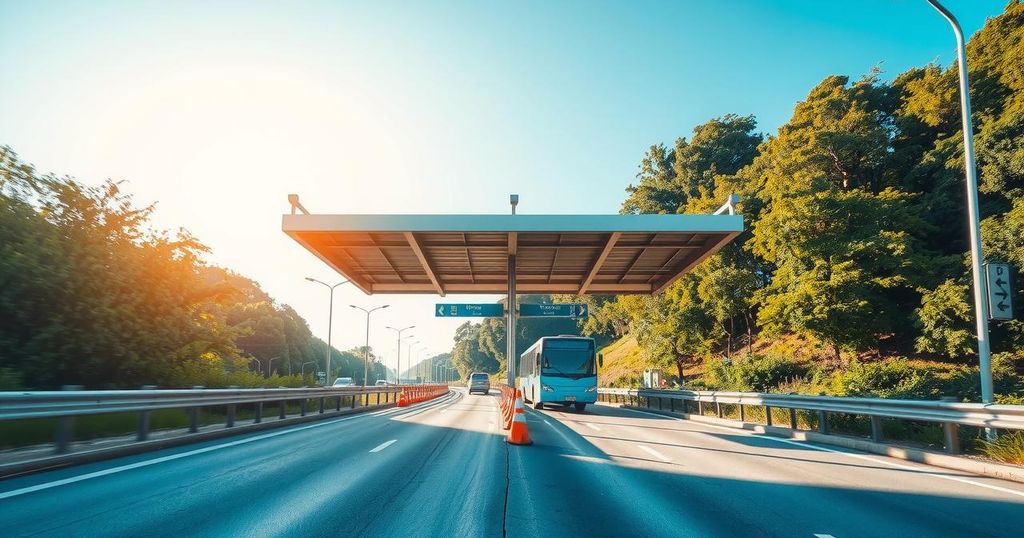Ghana Plans to Reintroduce Road Tolls with Advanced Collection System

Ghana’s Ministry of Roads and Highways is set to reintroduce road and bridge tolls using a modern collection system after abolishing them in 2021 due to inefficiencies. The controversial E-Levy, established to replace toll revenues, did not meet expectations. With worsening road conditions, the government aims to implement a transparent and efficient tech-driven toll system to address infrastructure funding challenges.
The Ministry of Roads and Highways in Ghana plans to reinstate road and bridge tolls using a modern technology-driven collection system. This move comes following the abolition of tolls in 2021, which was attributed to inefficiencies, traffic congestion, and loss of government revenue. The 2022 budget introduced the E-Levy as a revenue stream to replace tolls, but it did not yield desirable results, leading to increasing calls for a return to tolls.
Tolling was previously a vital funding source for road infrastructure before its discontinuation. The government had justified the removal of tolls by citing that toll booths led to excessive delays and urban congestion. However, since the suspension of tolls, the E-Levy has faced public backlash and failed to produce the anticipated revenue, aggravating the funding situation for road maintenance as road conditions continue to deteriorate.
To address the funding gaps in road maintenance, the Ministry is focused on developing a transparent and efficient toll collection system. The procurement process for this initiative aims to be open, competitive, and cost-effective, ensuring that it meets modern standards. The government envisions this technological overhaul as a long-term solution to overcome the challenges faced in road funding due to past inefficiencies.
As toll payments may soon be reinstated, it remains critical for the government to successfully execute the new system and gain public acceptance. The vital next steps include revealing more specifics regarding pricing and the timeline for implementing the tolling system. This will be crucial as the government seeks to reassure the public that it has learned from past mistakes and that tolls are necessary for infrastructure improvement.
Prior to their abrogation in 2021, road tolls served as a significant funding mechanism for maintaining and improving road infrastructure in Ghana. The abolition came under the premise that traditional toll booths contributed to urban congestion and operational inefficiencies. To replace these revenues, the government introduced the E-Levy, which faced substantial criticism and did not generate the anticipated funds, resulting in increased pressure to find new revenue sources to enhance road conditions across the nation.
The decision to reintroduce road and bridge tolls in Ghana marks a critical shift aimed at addressing funding deficits in road maintenance. With plans for a technology-driven toll collection system, the government seeks to establish efficiency and transparency in toll operations. Success relies on effective implementation, public support, and rectifying past challenges associated with toll collection. More information on the tolling structure is anticipated soon, alongside strategies to bolster public trust in this initiative.
Original Source: techlabari.com




